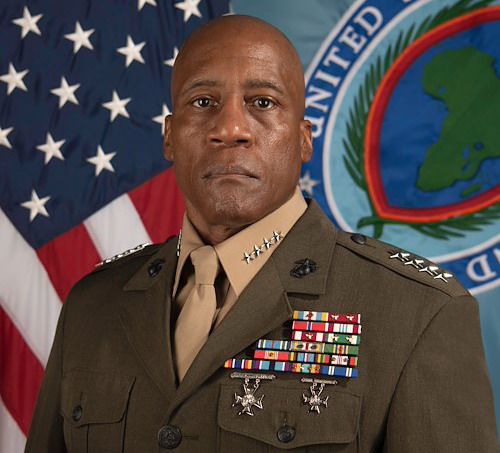
The senior United States (US) soldier in Africa told the US Congress that global events, including Russia’s war on Ukraine and Houthi attacks in the Red Sea, have impacted the lives of millions of Africans.
US Marine Corps General Michael Langley, current US Africa Command (Africom) Commander, said: “Terrorism, poverty, food insecurity, climate change and mass migration shatter African lives”.
“These factors sow the seeds of violent extremism and Russian exploitation across entire regions of the continent. We’re seeing impacts as these threats unfold,” he told US lawmakers, giving Chad as an example where challenges to democratic governance complicated US relations with “key partners”.
Africom espouses the 3D approach: diplomacy, development and defence professionals, to ensure a synchronised whole-of-government effect.
“Africom’s campaign [plan] revolves around central themes of ensuring strategic access, countering threats to the homeland and US interests, preparing for and response to crises and lastly, bolstering our allies and partners.” The plan, according to him “places our African partners at the centre of achieving positive change by executing African led, but US enabled, operations”.
Much of the discussion during the hearing focused on strategic competition from China and Russia. Langley emphasised the need for a comprehensive whole-of-government approach as it relates to US engagement in Africa because it provides an intrinsic value competitors cannot match.
“They can’t match what we’ve been doing in health diplomacy or what USAID has been able to achieve in regards to malaria, AIDS, Covid, Ebola and the full throes of the PEPFAR (US President’s Emergency Plan for AIDS Relief) programme of increasing life expectancy over 20 per cent.”
In the official statement of record submitted to Congress, Langley noted partnerships are built with sovereign African partners as they implement own solutions to achieve a just, secure and prosperous future. The contrasts across the operating environment are stark. Some governments struggle to stave off state failure, while others enjoy the benefits of modern development and reliable governance.
Use of kinetic military force is a last resort that can produce fleeting or counterproductive outcomes, he said in the written statement.
“Africom’s approach is to help African people address underlying conditions. We operationalise the toolkit of security co-operation [including institutional capacity building, multinational exercises as well as intelligence and information sharing],” Langley said.
“The outcome for which we all strive in Africa – the outcome most important to America’s national security – is a continent of free, safe, prosperous and resilient nations that hold their peoples’ interests at heart.”
- A Tell report











